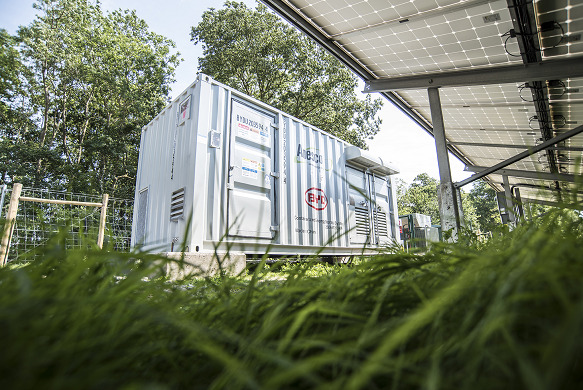Anesco is investigating how it could adopt flow batteries into future projects instead of lithium as a response to growing uncertainty around the future of storage de-rating in the capacity market, Clean Energy News can reveal.
The Department for Business, Energy and Industrial Strategy (BEIS) published a consultation in July outlining proposals to alter the current de-rating status of storage assets participating in the market to reflect discharge periods achievable by the batteries.
This would lower the rate from its current 96% to various levels depending of the assets‘ ‘energy limited storage’, which in the consultation varied between 30 minutes – assumed to be the usual capability of batteries currently in the capacity market – and four hours to address the potential length of a stress event in the UK.
As a result the business case around shorter duration batteries, which are often currently used to bid into the market, will likely be impacted.
Speaking at Solar & Storage Live, Anesco’s director of connections Daniel Cohen explained that the potential for this regulatory change has meant that the developer is now seeking out battery technologies with longer discharge duration potential.
“We’re not just looking at lithium batteries which we use at the moment; we’re looking at flow batteries because of [the] capacity market. It’s all about how we’re going to cope with de-rating so we’re looking at batteries that can last longer than lithium to cope with that mechanism and contract,” he said.
He later clarified to Clean Energy News that the company was visiting sites in the UK to further understand the technical ability of flow batteries and how Anesco could adapt the product.
“We are evaluating everything from two to ten hours for different applications; this is very much in the development stage at present,” he added.
BEIS has yet to clarify when the de-rating changes could be applied, with concern among some storage developers that it could be brought in soon and affect the upcoming capacity market auctions in January and February 2018, despite pre-qualification windows having already closed.
Describing Anesco’s preparations for the upcoming auctions, Cohen said: “We spent 18-24 months building a portfolio to go into capacity market and suddenly we get a nudge in the back about de-rating.
“It is worrying hence we’re looking at flow batteries and other technologies. You have to stay flexible and nimble, and work with the decisions that have been made.”
However, he added that initial investigations into flow battery technology had found that the sheer size of the units needed for Anesco’s purposes make development difficult from a planning perspective.
Despite these issues, the company will continue to look at using flow batteries in future should they be needed to suit the capacity market, while also investigating technology being developed for longer duration lithium batteries.






